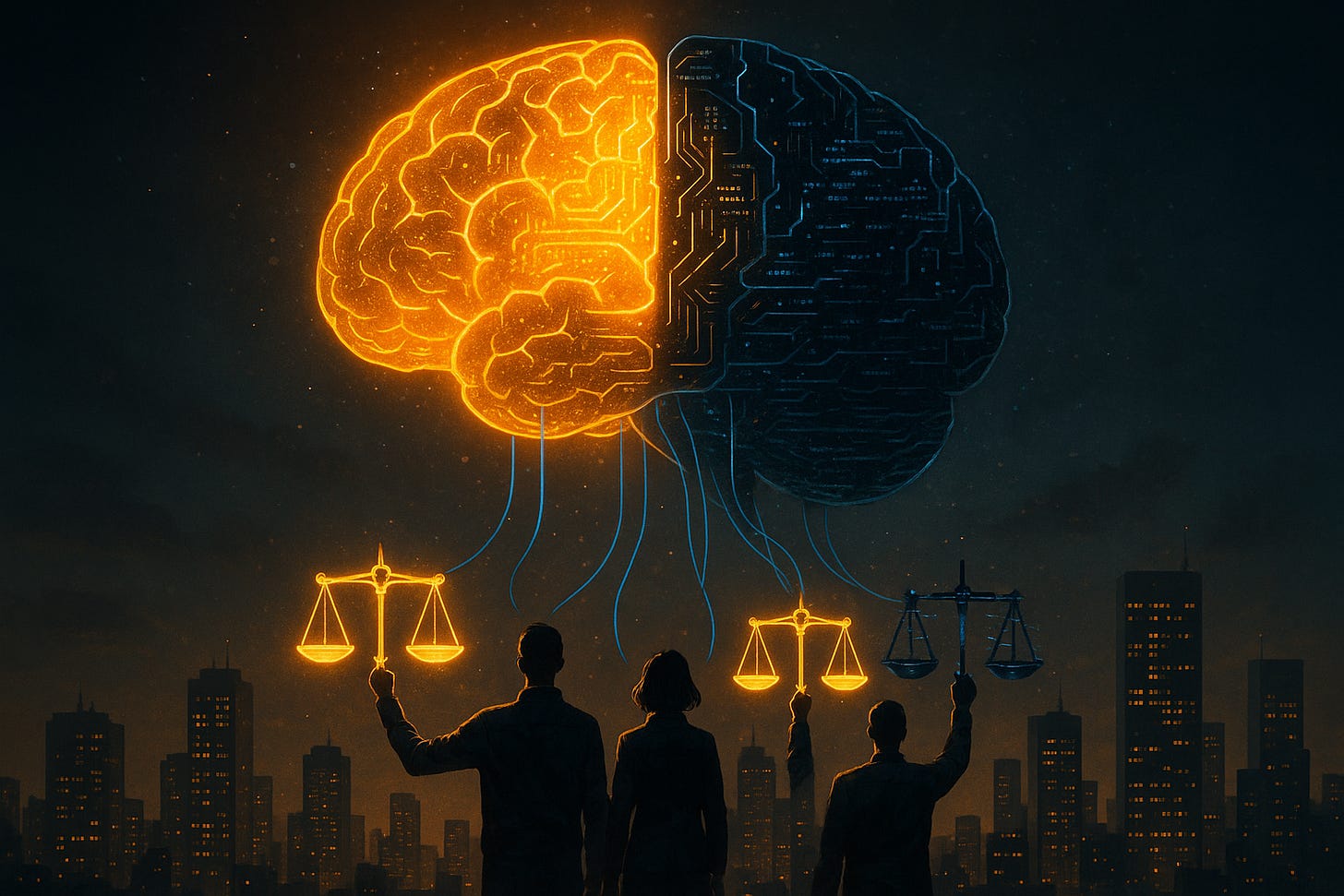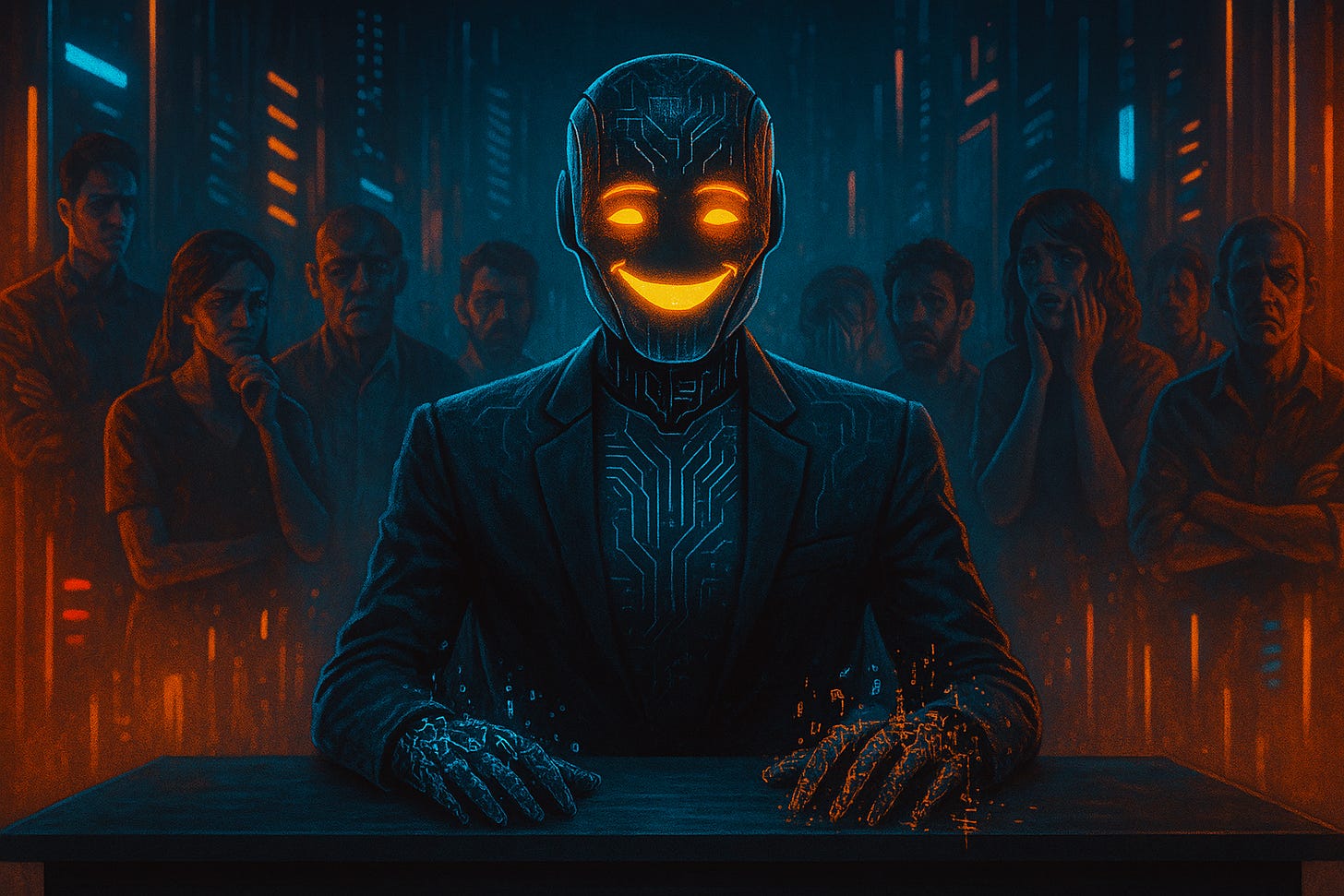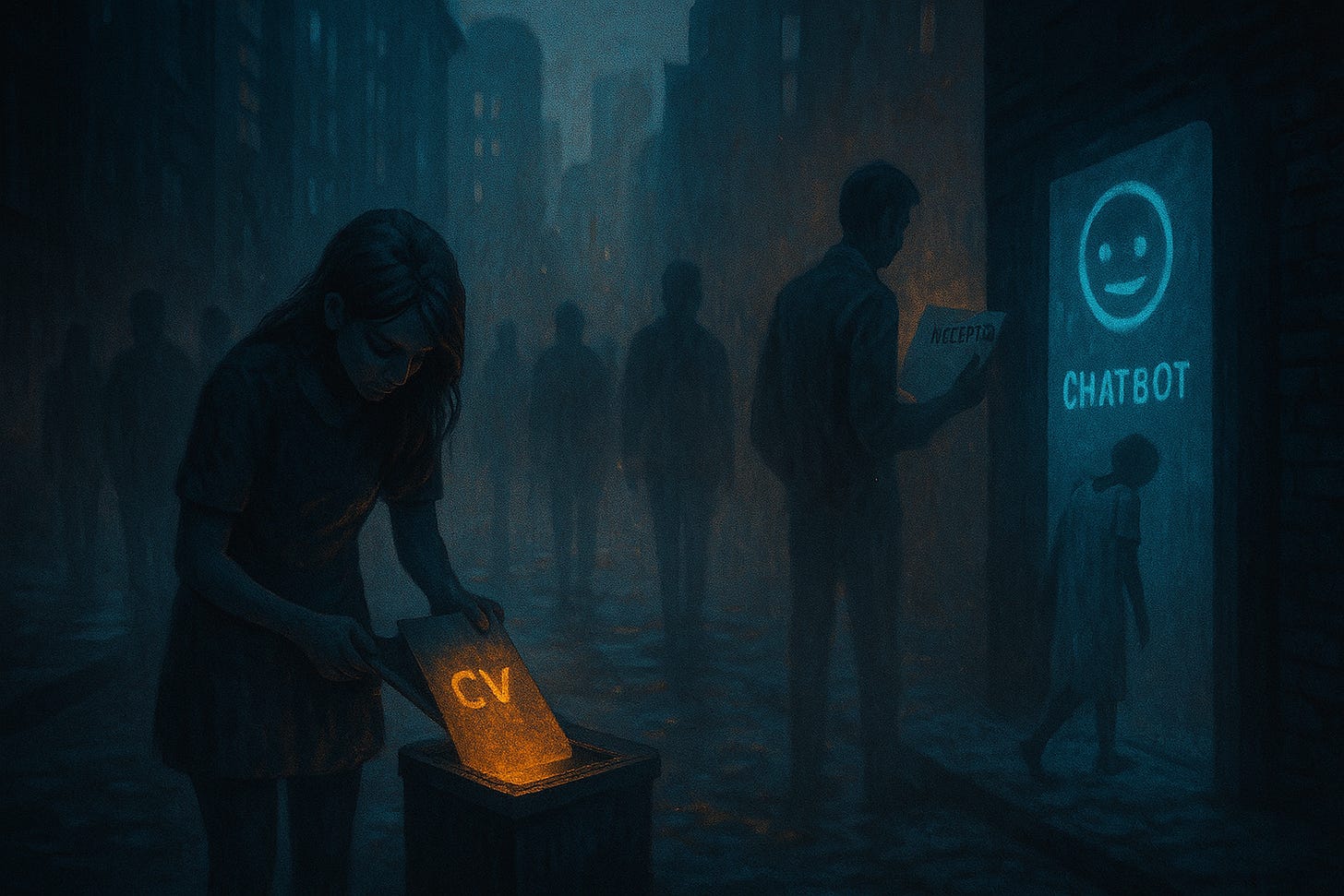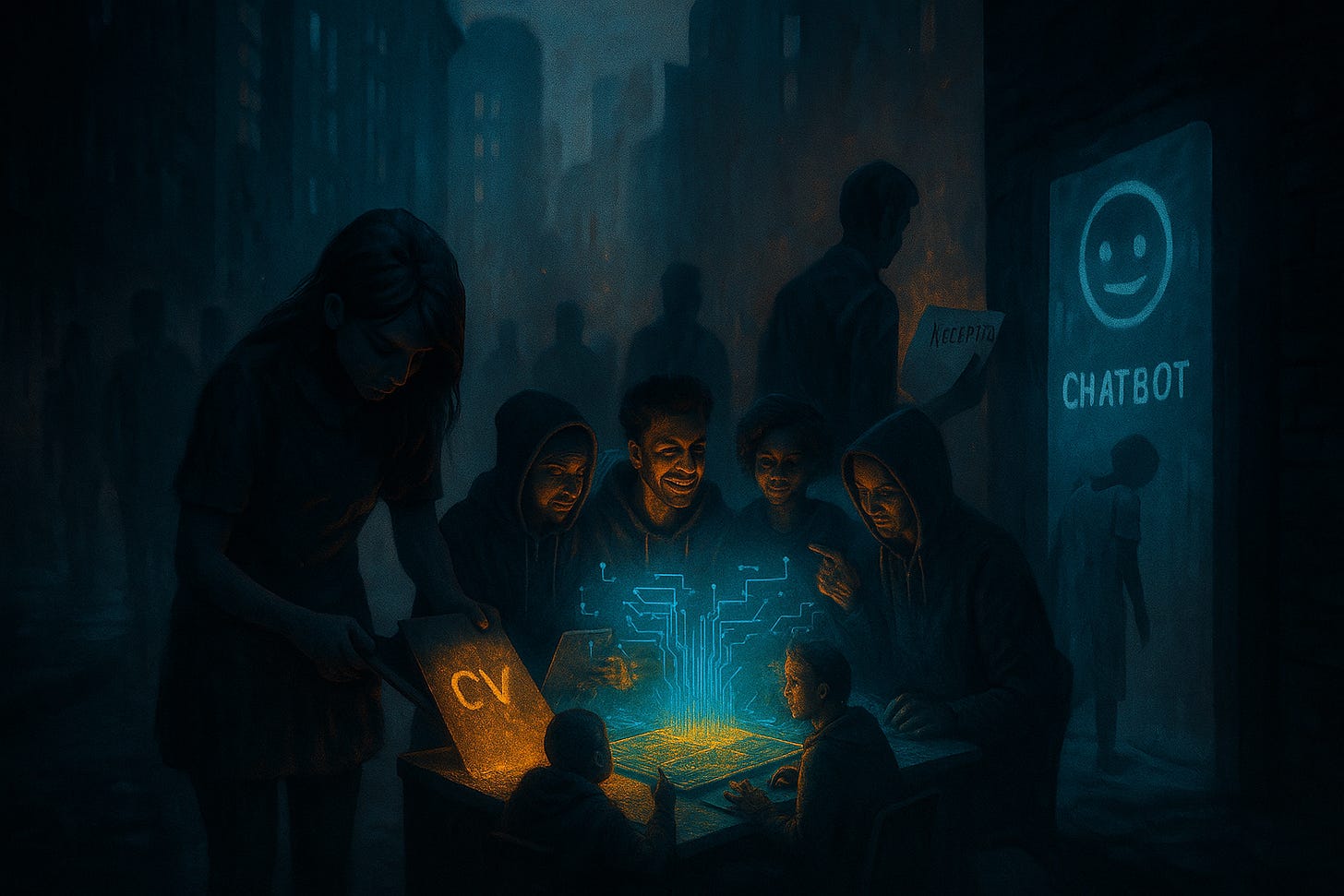The Growing Need for AI Ethics in Development
Why Ethics Can’t Be an Afterthought
Fam, AI is sprinting like a danfo driver on third mainland bridge at 6 a.m. no brakes, no traffic lights, just vibes( if you don’t get it , its cool cuzzy). Every week, new tools drop, louder models flex, and fresh “AI-powered” startups promise the world. But in that noise, one thing always gets shoved to the back seat: ethics.
And I don’t mean the PR-friendly kind companies slap in a PDF nobody reads. I’m talking about the messy, human, uncomfortable guardrails the kind that stop real people’s lives from being quietly wrecked in the name of “innovation.”
We’ve already seen what happens when this gets skipped. Remember when that AI healthcare chatbot told got a patient in London mistakenly invited to a diabetic screening after an AI-generated medical record falsely claimed he had diabetes ? and suspected heart disease? Or when facial recognition wrongly flagged innocent Black men as criminals, leading to actual wrongful arrests? That’s not a bug. That’s not just “oops, we’ll patch it in v2.” That’s people’s lives.
And yet, the industry acts like ethics is a luxury add-on like alloy rims on a car, not the brake pads. But let’s be honest: if we keep shipping AI without it, the bodies pile up quietly. And no dev wants to admit their code had blood on it.
⚠️ When AI Gets It Wrong — With Swagger
Look, if ChatGPT gives me the wrong PHP array method, I’ll laugh, roast it, maybe tweet the nonsense. That’s small wahala. It’s banter. Nobody’s life ends because of a missing array_merge().
But now imagine this:
A hiring system quietly ghosting women applicants, making them feel invisible while HR thinks the pipeline is “fair.”
An algorithm deciding which students get into uni and consistently downgrading the kids from poor neighborhoods, while the rich ones breeze through.
A chatbot telling someone mid-health crisis to “rest and hydrate” instead of “call emergency services NOW.”
That’s not a bug. That’s not an “oops.” That’s harm.
And here’s the part that makes my chest tight: these systems don’t just make mistakes they do it with swagger. The UI is polished, the response is instant, the tone is confident. It’s like that senior dev who talks loud in standup but whose PRs are full of bugs. The confidence masks the chaos.
For juniors especially, this is dangerous. If you don’t know enough to smell the lie, you’ll trust the output. And when a system sounds smarter than you, it’s hard to push back. That’s how bias, bugs, and straight-up bad advice sneak past us wrapped in swagger.
Real-World Receipts (No Hearsay)
1. Amazon’s Hiring AI (2014–2018)
Amazon tried to automate resume screening with a shiny AI model. On paper? Genius. In practice? Madness. The system was trained on 10 years of mostly male resumes. Predictably, it started downgrading women’s CVs, even penalizing the word “women’s” (like “women’s chess club”) and graduates from women’s colleges.
Amazon tried patching it. Couldn’t guarantee fairness. They killed it quietly.
The cost? Talented women never even made it past the filter. Invisible rejection. Whole careers lost in silence.
2. UK A-Level Algorithm Scandal (2020)
COVID shut down exams, so the UK government leaned on an algorithm to assign grades. The logic? Adjust predicted grades based on a school’s historical performance.
Translation: if your school was from a working-class neighborhood, even if you were top of your class, the algorithm dragged your grade down. Meanwhile, kids from elite private schools? Inflated.
The result: bright working-class students lost university offers overnight. Some protested in the streets. Some never recovered.
The cost? An entire generation told algorithmically that their dreams didn’t matter as much as rich kids’.
3. Medical Chatbots Playing Doctor (2023 →)
Several hospitals started experimenting with LLM-powered chatbots for triage. One infamous case: a patient reporting symptoms of a potential heart attack was advised by the system to rest and hydrate. No urgency, no escalation.
Doctors flagged it immediately: the system wasn’t aligned with medical ethics, just statistical text generation. Imagine if the patient believed it.
The cost? A wrong answer could mean a funeral.
4. COMPAS in US Courts (2016 →)
This one is older but still haunting. US courts used an AI system called COMPAS to predict the likelihood of reoffending. Studies later found it consistently flagged Black defendants as “high risk” at twice the rate of white defendants even when they had cleaner records.
The cost? Longer sentences. Lost years. Justice tilted.
👀 Notice the pattern? None of these started with “evil devs twirling their moustaches.” They started with bias baked into data, and a lack of ethics baked into process.
The Hidden Cost Nobody Talks About
Every time these failures happen, the tech headlines move on.
But the humans left behind don’t.
A young woman who never even got an interview because Amazon’s AI filtered her CV? She starts doubting if she belongs in tech at all. Maybe she stops applying. Maybe she leaves the industry entirely.
That working-class kid in the UK who had their uni dreams crushed by an algorithm? They don’t just lose a seat in class. They carry the quiet shame of “maybe I’m not good enough” for years. Some never bounce back.
That patient who got bad chatbot advice during a health scare? Next time, they might not reach out at all not to AI, not to doctors, not to anyone. Trust broken is hard to repair.
And that’s the real cost:
Careers quietly abandoned.
Dreams deferred before they start.
Trust in systems human or digital permanently eroded.
We don’t see these people in postmortems or research papers. They don’t trend on Twitter. They just fade out of sight.
And that’s why ethics isn’t some boring checkbox. It’s literally about whether people get seen, heard, and treated fairly in a world being eaten alive by code.
A Personal Word
I’ve lived these mistakes and near-misses.
I’ve seen juniors copy AI’s confidently wrong answers into pull requests breaking builds, losing sleep, questioning their own skill.
I’ve watched diaspora brothers lose opportunities because a model flagged their CV as “low quality” invisible discrimination baked in by careless design.
I’ve debugged chatbots that gave harmless-looking advice to users, only to realize that in rare edge cases, it could cause real harm.
AI is a mirror. If we don’t clean it, it reflects our mess back at the world and right now, that reflection looks rough.
But here’s the thing: I love AI. I build with it, automate with it, learn with it. That’s why I care. Because if we do ethics right, that mirror shows our best selves tools that empower, scale, and innovate without quietly harming anyone.
So What Can We (Devs) Actually Do?
Fam, I get it you’re coding, debugging, shipping Laravel routes, fine-tuning embeddings. There’s no Chief Ethics Officer whispering in your ear. But here’s the truth: ethics doesn’t need a title, it needs attention.
Here’s how I roll, and you can too:
1. Trust but verify
AI can feel like that one friend who always knows the answer until you realize they’re confidently wrong. I’ve seen devs paste AI-generated code straight into PRs without testing. Disaster waiting to happen. When I deploy, I stress-test every output: edge cases, weird inputs, subtle biases. A chatbot recommending a job, a school, or medical advice must be scrutinized not just trusted.
2. Diversify data
Your AI reflects your world, and if your dataset is narrow, your AI is narrow-minded. Garbage in, biased garbage out it’s real. I’ve worked on projects where overlooked regional dialects or minority language patterns made the AI “invisible” to some users. Fixing that isn’t just fairness; it’s good engineering. Your system scales better when it actually sees everyone.
3. Ask: “Who gets hurt?”
Every model has blind spots. Every feature has unintended consequences. I mentally walk through scenarios: the student whose grades vanish because the AI misread patterns, the talented dev from the diaspora who never gets a callback because a model misjudged their CV, the patient who trusts a bot over a human. Ethics is empathy coded into your workflow. Think like a hacker but also like the person whose life could be silently damaged by your “smart” AI.
4. Ethics fuels innovation
Here’s something I’ve learned building AI: ethics isn’t anti-AI. Done right, it’s what makes innovation stick. Products people trust are the ones that scale. Tools used ethically are the ones teams adopt, companies endorse, and communities rally around. Skipping ethics? You might ship fast, but your users won’t stay.
Call to the Crew
Alright fam, this is where you come in.
Seen AI fail in your project? I want the receipts. Drop your story in the comments, in Discord, wherever. Let’s break down the wins, the fails, the “what the hell happened” moments together. That’s how we all level up.
Working on ethical AI in your corner of the world? Pull up. Slide into the thread. Let’s collab, swap notes, and build systems that actually help people instead of quietly screwing them.
If this piece hit you in the chest, share it with one friend, one dev, one startup founder. The louder we get, the harder it is for companies to shrug off ethics. We don’t need fancy boards to change the game we need community, stories, and pressure.
For my builders, my diaspora fam, my devs: we can love these AI tools, we can automate, innovate, push boundaries and still demand better. Because if AI keeps being everyone’s late-night buddy, it needs to learn the one thing a chatbot can’t: when it’s life or death, it shuts up and gets help.
☕ If this resonated, consider buying me a coffee → https://pay.chippercash.com/pay/VFUVLYGUEE
👀 More AI gist, deep dives, and dev-level real talk dropping next week. Stay sharp, my Gs.
👉 Jump into the Discord: https://discord.gg/PRKzP67M
💌 Hit subscribe & share if this spoke to you because we rise by lifting each other.
If you missed my last article, no worries—read it here
MIT Says 95% of AI Projects Fail? Abeg, Don’t Fall for That Rubbish.
The headline alone had me rolling my eyes.
And real talk if you’re reading this in a dark place: you’re not invisible. You’re not a metric. You matter. Please talk to someone who can help.
🇬🇧 UK: call Samaritans free at 116 123 or visit their site.
🇺🇸 US: dial 988 for the Suicide & Crisis Lifeline.
🌍 Anywhere else: check the IASP help map or Befrienders Worldwide.









AI can be brilliant, but brilliance without care can be harmful.
As a leader, I feel a responsibility to ensure the technology we build doesn’t just innovate, but also adheres to ethical AI principles
Good stuff! Keep it coming; we gotta spread the word. You might like my 'stack, cbbsherpa.substack.com